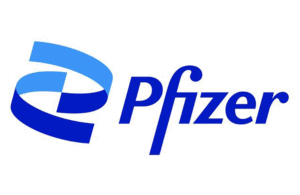 The investigational bispecfic antibody elranatamab has won breakthrough therapy designation from the FDA for relapsed or refractory multiple myeloma (RRMM).
The investigational bispecfic antibody elranatamab has won breakthrough therapy designation from the FDA for relapsed or refractory multiple myeloma (RRMM).
Also known as PF-06863135, erlanatamab is a B-cell maturation antigen (BCMA)-targeted T-cell redirecting immunotherapy. BCMA is highly expressed on the surface of multiple myeloma (MM) cells. Elranatamab is also designed to target the CD3 receptor on the surface of T-cells to destroy myeloma cells.
Pfizer is developing elranatamab for subcutaneous use, which it believes could reduce adverse effects from the drug candidate such as cytokine release syndrome (CRS) while also offering improved convenience over IV infusions.
FDA previously granted fast track designation to the drug candidate to accelerate its rapid development and regulatory review.
To date, Pfizer has won twelve breakthrough therapy designations from FDA in oncology.
FDA’s decision to grant breakthrough therapy designation to elranatamab rests on six-month follow-up data from cohort A (n=123) of the open-label Phase 2 MagnetisMM-3 study.
In that study, RRMM patients received a 76 mg dose of elranatamab monotherapy each week with a two-step-up priming dose regimen in the first week.
The main endpoint of the trial was objective response rate.
To date, the drug candidate had a manageable safety profile at 6.8 months. Cytokine release syndrome was the most common adverse event, affecting 57.9% of participants. The majority of cases were either Grade 1 or 2.
The drug candidate had an overall response rate (ORR) of 61.0%. Patients who were responders had a 90.4% probability of maintaining a response at six or more months.
Pfizer plans on sharing additional information related to the drug candidate at the 2022 ASH Annual Meeting and Exposition, scheduled for December 10 to 13 in New Orleans, Louisiana.
Positive data related to elranatamab were published last year in Blood.
PFE shares were down about 1% to $46.57.
Last year, Pfizer accused a former employee in the U.S. District Court for the Southern District of California of stealing documents related to the avelumab and elranatamab monoclonal antibodies.